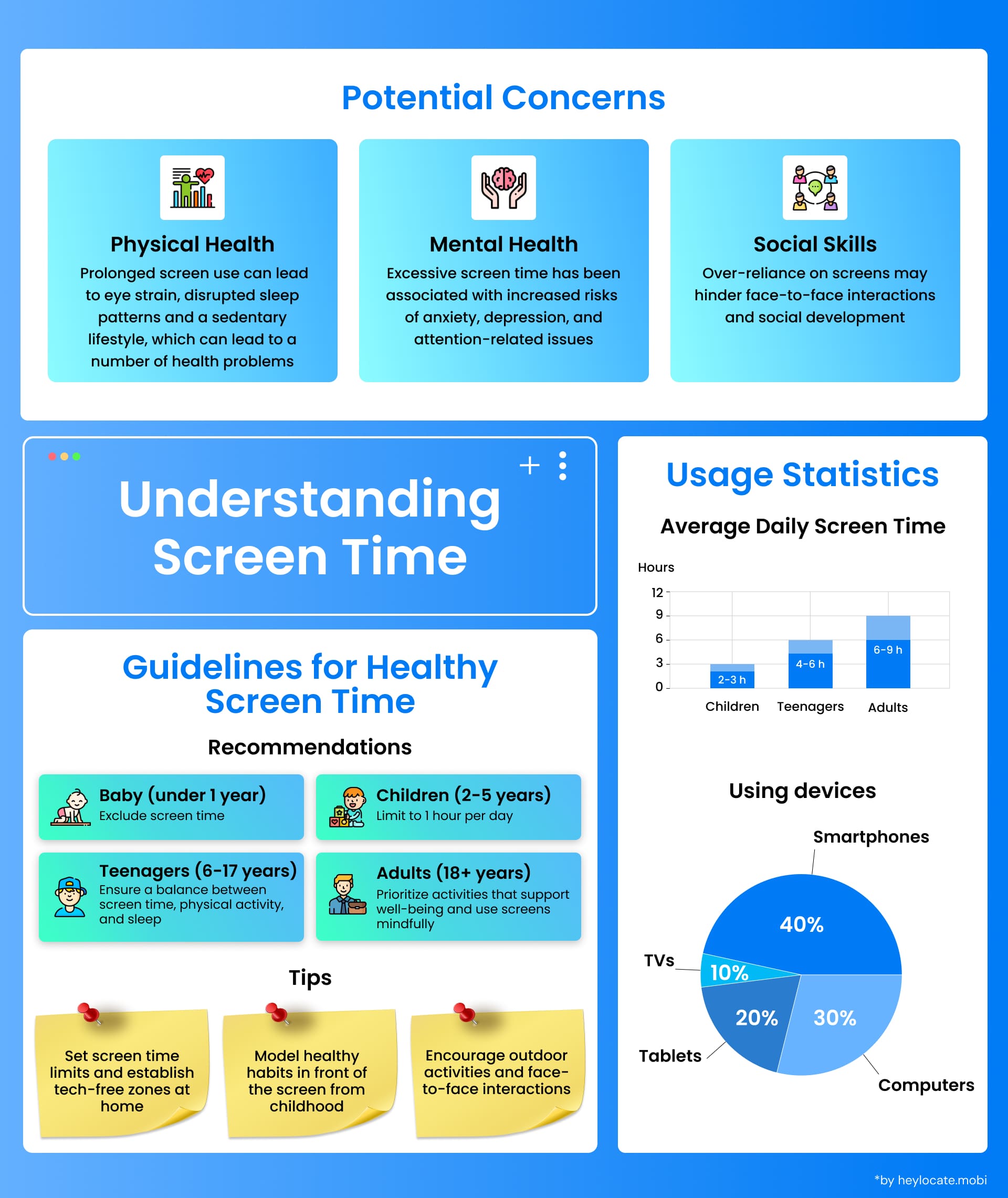Screen Time
What is Screen Time?
Screen time is the total amount of time an individual spends using electronic devices with screens. These devices include smartphones, tablets, computers, televisions, and video game consoles. Screen time encompasses various activities such as browsing the internet, playing video games, watching videos, using social media, and working on computers.

Socioeconomic Factors and Screen Time
Screen time usage varies depending on socioeconomic factors like race and social class. Studies suggest that individuals from marginalized communities may have limited access to technology, resulting in less screen time. Conversely, individuals from higher socioeconomic backgrounds often have more devices and might engage in excessive screen time.
Impact of Screen Time
Disparities in screen time usage can significantly impact opportunities and experiences. For example, affluent schools often integrate more technology into their curriculum, exposing students to more screen time than public schools with limited resources.
Excessive screen time has been associated with various physical health impacts, including:
- Blue light from screens can disrupt the sleep-wake cycle, leading to difficulty falling asleep and inadequate rest.
- Excessive screen time contributes to sedentary behavior, weight gain, and obesity due to decreased physical activity and exposure to food advertisements.
- Screen time can impact mental health and cognitive development in children and adolescents.
- Excessive screen time, particularly on social media, can lead to increased feelings of loneliness, low self-esteem, and a higher risk of mental health disorders.
- Excessive screen time during critical developmental stages can hinder cognitive skills and lead to behavioral problems.
Guidelines and Recommendations on Screentime
For adults, it’s important to be conscious of the time spent on screens, take breaks at regular intervals, maintain good posture, and give priority to physical activity and social interactions.
Regarding children, the World Health Organization (WHO) suggests no screen time for children under one-year-old, restricted screen time for kids aged 2-4, and a minimum of one hour of daily physical activity for children aged five and above. Similarly, the American Academy of Pediatrics (AAP) advises interactive and educational screen time for children aged 2 to 5 and limited recreational screen time for kids aged 6 and older.
References
- Screen time – Wikipedia
- Screen time and children: MedlinePlus Medical Encyclopedia
- Use Screen Time on your iPhone or iPad – Apple Support
- Screen time | Department of Health
- Managing screen time | NSW Government
- Screen time for kids learn about the effects | Internet Matters
- Screen Time and Children | AACAP